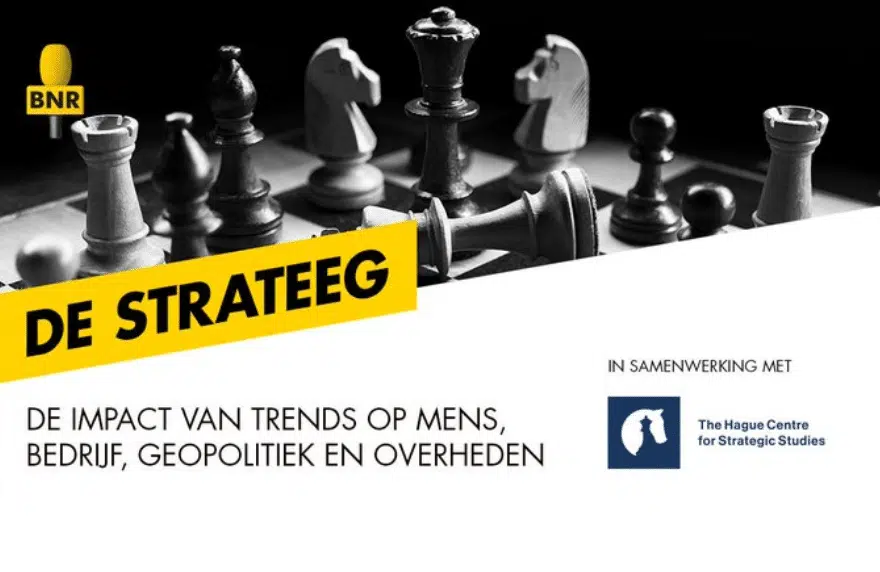Eigenlijk is ‘A very stable Genius’ een stomvervelend boek, schrijft Rob de Wijk in zijn wekelijkse column voor Trouw. Minutieus brachten twee journalisten van de Washington Post de eerste drie jaar van Trumps presidentschap in beeld. Maar na honderd pagina’s weet je het wel. Het is chaos in het Witte Huis. De president is een roekeloze, narcistische, impulsieve autocraat die geen idee heeft van zijn verantwoordelijkheden en bevoegdheden, op elke pagina iemand ontslaat en de verhouding met Amerika’s trouwste bondgenoten sloopt. Maar gezien zijn gestegen populariteitscijfers na de mislukte impeachment, blijkt zijn electoraat daar volstrekt niet mee te zitten.
En toch moet iedereen dit boek lezen. Het is de geschiedenis van het verval van de machtigste democratie van de wereld. Het grote probleem van Amerika is daarom niet eens Trump, maar dat democratie mensenwerk is en dat wetten krachteloos zijn als politici ze niet willen uitvoeren. De president, veel ministers en Congresleden blijken er geen behoefte aan te hebben de rechtsstaat te beschermen.
Precies dit is ook in Europa aan de hand. En dan heb ik het niet alleen over Polen, waar vanaf 2015 de regeringspartij Recht en Rechtvaardigheid (PiS) de bijl aan de wortel van de rechtsstaat zet. We zien hetzelfde in Hongarije en nu ook in Nederland.
Favoriete doelwitten van antidemocraten
Net als in Amerika zijn rechters en pers, twee pijlers onder de democratische rechtsstaat, favoriete doelwitten van antidemocraten. Dat daarmee de rechtsstaat ten grave wordt gedragen, zal ze een zorg zijn. Sterker, die rechtstaat remt hun autoritaire gedrag. Want door de rechtsstaat is hun wil geen wet.
Deze weken hebben we in ons land hiervan weer mooie staaltjes gezien. Wilders vond het minder-Marokkanenproces een ‘politieke poppenkast’ van rechters, die ‘verblind zijn door haat tegen hem en de PVV’. Baudet wil een einde aan de ‘politieke rol’ van rechters, die naar zijn smaak de regering te vaak terugfluiten.
Dat gebeurde met uitspraken over het terughalen van kinderen van IS-strijders uit Syrië, en over het terugdringen van broeikasgassen en stikstof.
Het echte probleem is dat gematigde politici geen goed antwoord hebben op dit soort retoriek. Kennelijk kunnen of willen parlementariërs ook in Nederland de rechtsstaat niet meer uitleggen. D66-leider Jetten deed nog een poging in ‘Nieuwsuur’, maar de meesten willen het gevecht niet aangaan of vinden dat hun weerwoord de aanhang van Wilders of Baudet toch niet bereikt. Dus gaan ze akkoord met de instelling van een parlementaire werkgroep ‘dikastocratie’ die moet onderzoeken of rechters op de stoel van de regering zitten. Minister van Staat Tjeenk Willink weigerde er zitting in te nemen. Terecht. Alleen al het instellen van de werkgroep zwaait twijfel over de integriteit van rechters.
Gematigde politici zijn ook verantwoordelijk
Als de rechter de burger in de genoemde zaken gelijk geeft, betekent dit dat ministers hun eigen wetten niet uitvoeren. Einde discussie. In plaats van een werkgroep in te stellen, hadden zijn collega’s Baudet de werking van de rechtsstaat moeten uitleggen en moeten zeggen dat als hem uitspraken van de rechter niet bevallen, hij de wet moet proberen aan te passen.
Omdat dit niet gebeurt, zijn gematigde politici even verantwoordelijk voor de teloorgang van de rechtsstaat als antidemocraten. Dat geldt zowel voor Europa als Amerika.
Rob de Wijk is hoogleraar internationale relaties en veiligheid aan de Universiteit Leiden en oprichter van het Den Haag Centrum voor Strategische Studies (HCSS). Hij schrijft wekelijks over internationale verhoudingen. Lees zijn columns hier terug.





